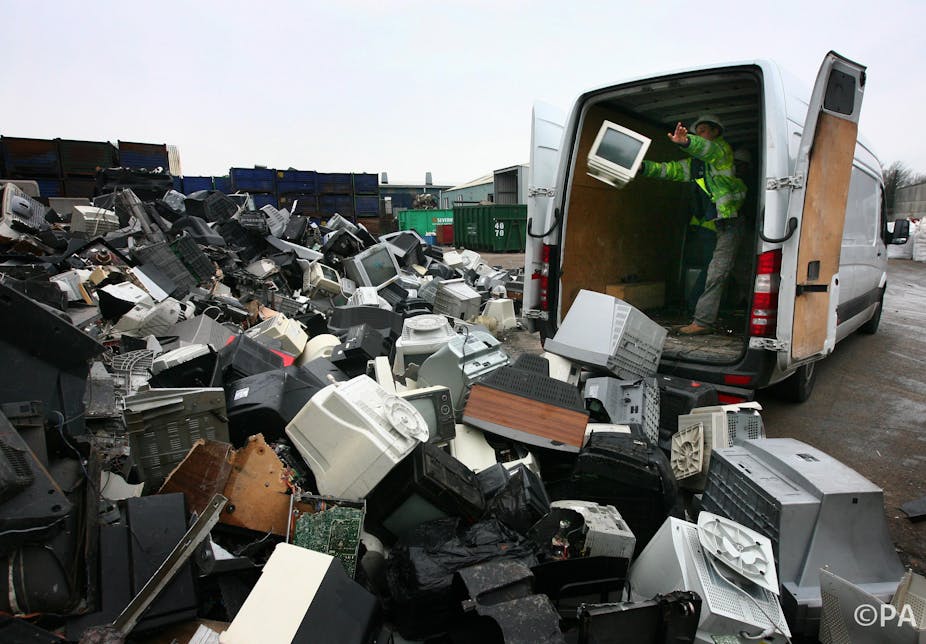Reducing waste should be uncontroversial. While the government’s newly published waste prevention programme represents an improvement on previous strategies, it could have been – should have been – far bolder. The 5p tax on single-use plastic bags was welcome and overdue, but it is essentially a token gesture that will not reduce the volume of waste we generate significantly.
The government’s waste report highlights several interesting developments, particularly recent work on longer lasting clothing by the publicly-funded Waste and Resources Action Programme – more than 1m tonnes of clothing are discarded each year in the UK. But too often it is unclear how laudable proposals in theory will be put into practice.
Obsolescence by design
For instance, the government proposes that products should be designed for environmentally optimal lifespans, with longevity, repair, reuse, remanufacturing and recycling in mind. But it doesn’t explain the process whereby companies might respond to its plea. How does one change the commercial logic that all too often favours short-lived goods, with frequent replacement? Not by fine words alone.
A key design requirement for goods should be ease of repair and maintenance. Products must be quick to disassemble in order to minimise labour costs. Spare parts must be available and, crucially, affordable. Yet all too often products suffer from poor design and spare parts are wildly overpriced. When repair work costs more than half the price of a new product, as is frequently the case, it makes no sense to repair when one could buy a new replacement. This is needless waste.
It’s simply the case that many companies prefer users to replace faulty products in order to maximise their revenues. And if this has driven, or works hand-in-hand with, our throwaway culture, then it is up to governments to present proposals that will set about changing how we think and act.
Hire, don’t fire
One intriguing idea in the report is the possibility of emphasising the hiring of goods as a resource-efficient business model. In theory, if the supplier retains ownership of the product – remember when we all used to hire televisions? – then this encourages creating products with greater intrinsic durability. But advocating hire sounds unconvincing coming from a government whose policies have forced the closure of hundreds of specialists with hire expertise – public libraries.
A new Community Partnership Fund has been announced to support communities to take steps to tackle waste and encourage reuse and repair. This is excellent, as we can only tackle the waste problem if people work together. But the paltry sum allocated, just £800,000, amounts to £470 per town in England and Wales, which is not going to change the world very fast. It’s tokenism rather than a serious effort to reshape our economy. The Chartered Institute of Wastes Management called the programme “lacklustre”. And seen beside the specific targets for waste reduction implemented by the legislatures in Scotland and Wales, it’s frankly embarrassing.
Waste begins when we shop, and the report recognises that consumers need more information about the anticipated life expectancy of their purchases. We’re too often left in the dark. So it’s imperative that more is done to develop some form of lifespan labelling, or that far longer guarantees are offered, replacing the “extended warranties” of dubious value. People need to be able to judge when it is worth paying more for premium priced products.
Ultimately, any product will reach the end of its lifespan and become waste. Successive governments have been reticent to introduce weight-related charges for household waste disposal (“pay as you throw”) such as those used in other countries, and in this regard the new waste prevention programme represents – another – missed opportunity. At its heart waste is discarded resources, resources that are finite in supply, and frequently growing in cost. It’s only right that the less a household throws away, the less it should pay in tax.

